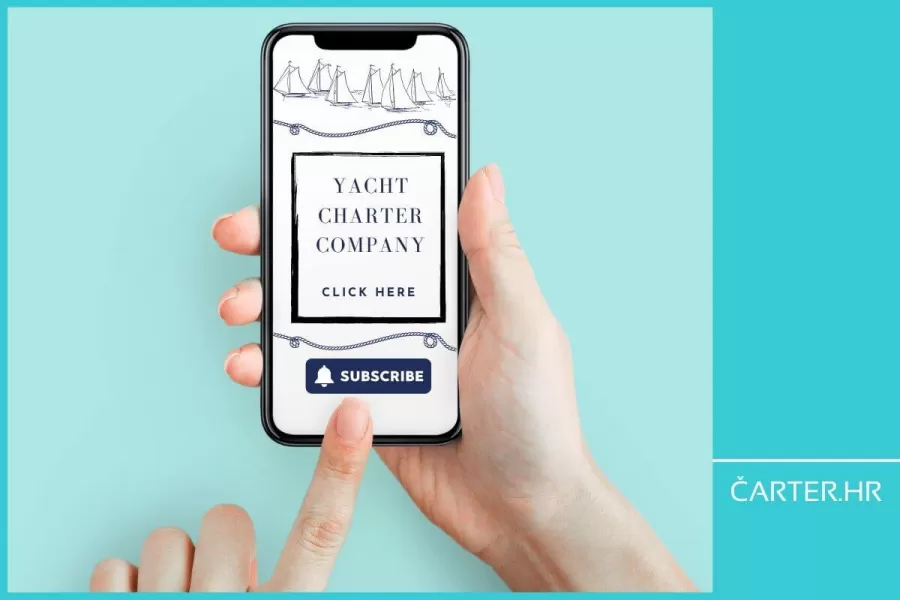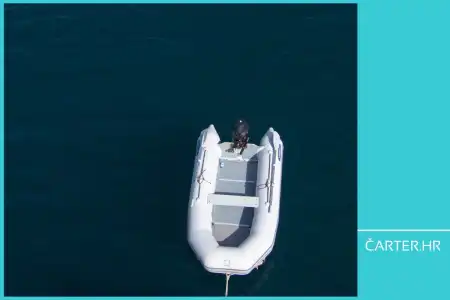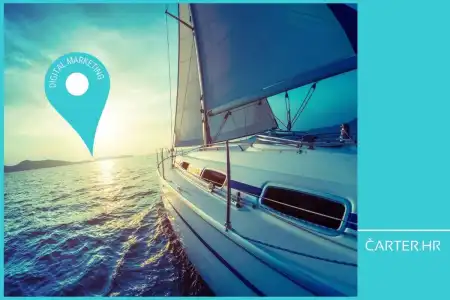
- 19.03.2024.
- News, Regulations
Digital marketing is the basis for the success of yacht charter companies, but it also brings legal obligations. Katarina Ćosić reveals everything about creating original content, obtaining consent for email marketing, and transparency in advertising - all essential elements to avoid legal sanctions and build trust with clients.
Digital marketing is becoming more and more important for yacht charter companies that want to attract clients and achieve successful business.
However, with all the advantages that digital marketing provides, there are also legal obligations that companies must comply with.
This article explores the key aspects of digital marketing legality for yacht charter companies and provides advice on staying compliant.

Copyright and photographs
Photos are an essential segment of digital marketing because they give a visual identity to a company's business. However, photographs are also works of authorship, and their use is subject to copyright laws. Yacht charter companies should ensure they have the right to use the photos on their websites, social networks and other marketing channels. This includes paying fees to the authors of the photos.
Before you click "upload", ask yourself:
- Do I have the right to use this picture?
- Did I name the creator appropriately?
- Should the artist be compensated?
Copyright law is often overlooked in the rush to present offers. However, ignoring it can destroy reputation and cause financial losses.
So what is the safe way?
Creating original content is the best option. Capture the essence of your services authentically.
Asking for permission. Found the perfect photo? Contact the author.
Pay attention to licensing. Many websites offer photos for free or for a fee. Make sure you comply with their licenses.

Protection of personal data
Yacht charter companies often collect personal information through their websites or apps. The Personal Data Protection Act (GDPR) stipulates how companies can collect, store and use personal data.
Companies must ensure they have clear privacy policies, user consent to data collection and a secure way of processing that data.
In addition, under the GDPR, companies must be transparent about processing personal data and give users control over their data. This includes the right to access, rectification, erasure and data portability.
Moreover, companies are obliged to report data breaches to the supervisory authority and inform individuals about such breaches if they may risk their rights and freedoms.
Therefore, yacht charter companies must comply with GDPR regulations to protect their users' personal data and avoid potential fines.

Transparency and truth in advertising
In Croatia, false advertising means any type of marketing communication that contains inaccurate, misleading or deceptive information about products or services.
This may include false promises, exaggerated claims about the performance of products or services, manipulative marketing tricks, or hiding essential information that could mislead consumers when making a purchasing decision.
False advertising also includes situations where products or services are presented in a way inconsistent with their actual properties or characteristics.
Examples of false advertising include presenting products as being of better or higher quality than they actually are or providing false information about prices, discounts or promotions.
In Croatia, the Consumer Protection Act prescribes specific advertising standards and requirements to protect consumers' interests and ensure fair market competition.
False advertising is considered a violation of that law and can result in fines and other sanctions for companies that violate it.
Yacht charter companies should be transparent in their marketing campaigns for several key reasons.
- First, truthful advertising and clear labelling of sponsorships show respect for consumers. Trust is the foundation of any successful business interaction, and transparency in advertising helps build that trust. Consumers value honesty and transparency, and the lack of these can lead to a loss of trust and a bad company reputation.
- Second, avoiding misleading information is not only moral but also legally mandatory. The law clearly prohibits false representation of products or services to attract clients. It is not only a matter of regularity but also of protecting consumers from fraud and unfair practices.
- Furthermore, in a world of fierce competition, yacht charter companies must set an example of fair and transparent practices. Truthful advertising standards are not only a recommendation but a necessity for maintaining business integrity and establishing long-term relationships with clients.
- Ultimately, consumer trust is critical to the success of any company, and transparency in marketing campaigns plays a key role in building that trust. Therefore, yacht charter companies should take their responsibility towards consumers seriously and strive to be an example of fair and transparent practices in all aspects of their business.

Email Policy
As for email rules in Croatia, the application is aligned with the European Union and its General Data Protection Regulation (GDPR). This means that companies whosend emails must ensure they have the recipient's consent to receive such messages, except where there is a legitimate business interest or other legal basis for sending email without consent.
Also, each email must contain clear information about the sender's identity and an option to unsubscribe or withdraw the recipient's consent. Violation of the email rules may result in fines and other sanctions in accordance with data protection regulations.
Yacht charter companies using email for marketing purposes must comply with email laws. This includes obtaining user consent before sending marketing messages, clearly labelling commercial emails and allowing users to unsubscribe.
In today's digital age, where email has become an indispensable part of marketing strategy, yacht charter companies that want to achieve success must comply with email laws.
Fundamental principles include respect for user privacy, communication transparency, and allowing users to control their marketing preferences.
The first and basic principle that yacht charter companies must respect is obtaining the user's consent before sending any marketing messages.
This consent is a crucial link in building trust between the company and the user, ensuring that marketing activities are welcome and relevant to recipients.
Regardless of whether it is notifications about special offers, new products or relevant information, user consent is a cornerstone of ethical and legal practice.
Clear labelling of commercial emails is also necessary so that users recognize that the message is of a marketing nature. This labelling helps in transparent communication and allows users to quickly distinguish between relevant information and marketing messages.
This encourages respect for users' time and ensures that marketing content is welcomed rather than perceived by users as spam.
Furthermore, allowing users to simply opt out of marketing messages is essential to maintaining a positive relationship with users. This practice respects users' privacy and provides transparency and control over their marketing preferences.
By making it easy to unsubscribe, companies show that they value the customer experience and are willing to tailor their marketing strategies to individual wants and needs.
Ultimately, compliance with email laws not only protects a company's reputation but also builds long-term relationships with customers.
Yacht charter companies that set respect for privacy and transparency as their core values will not only successfully avoid legal problems but will also build a loyal base of satisfied users.

Worry-free advertising
In conclusion, yacht charter companies must carefully approach digital marketing to meet legal obligations and achieve successful marketing results.
It is clear that yacht charter companies have a pivotal responsibility to approach digital marketing with care and respect legal obligations to achieve legal compliance and long-term marketing success.
Complying with email laws, including obtaining user consent, flagging commercial messages, and providing easy unsubscribing, not only preserves company integrity but also strengthens customer relationships.
Building trust with users becomes crucial in the digital age, where communication is of utmost necessity.
Yacht charter companies that adhere to the highest standards of transparency and respect for privacy create a positive customer experience, resulting in loyal clientele and positive reputations in the market.
Through a careful approach to digital marketing, companies not only fulfil their legal obligations but also lay the foundation for long-term success in the dynamic world of online business.
Categories of trends
- News
- Sale
- Marketing
- SEO
- Web design
- Social media
- Technology
- Regulations
- Management
- Education
- Finances
- User experience
Newsletter
Sign up for the newsletter and receive the latest trends and tips straight to your inbox




